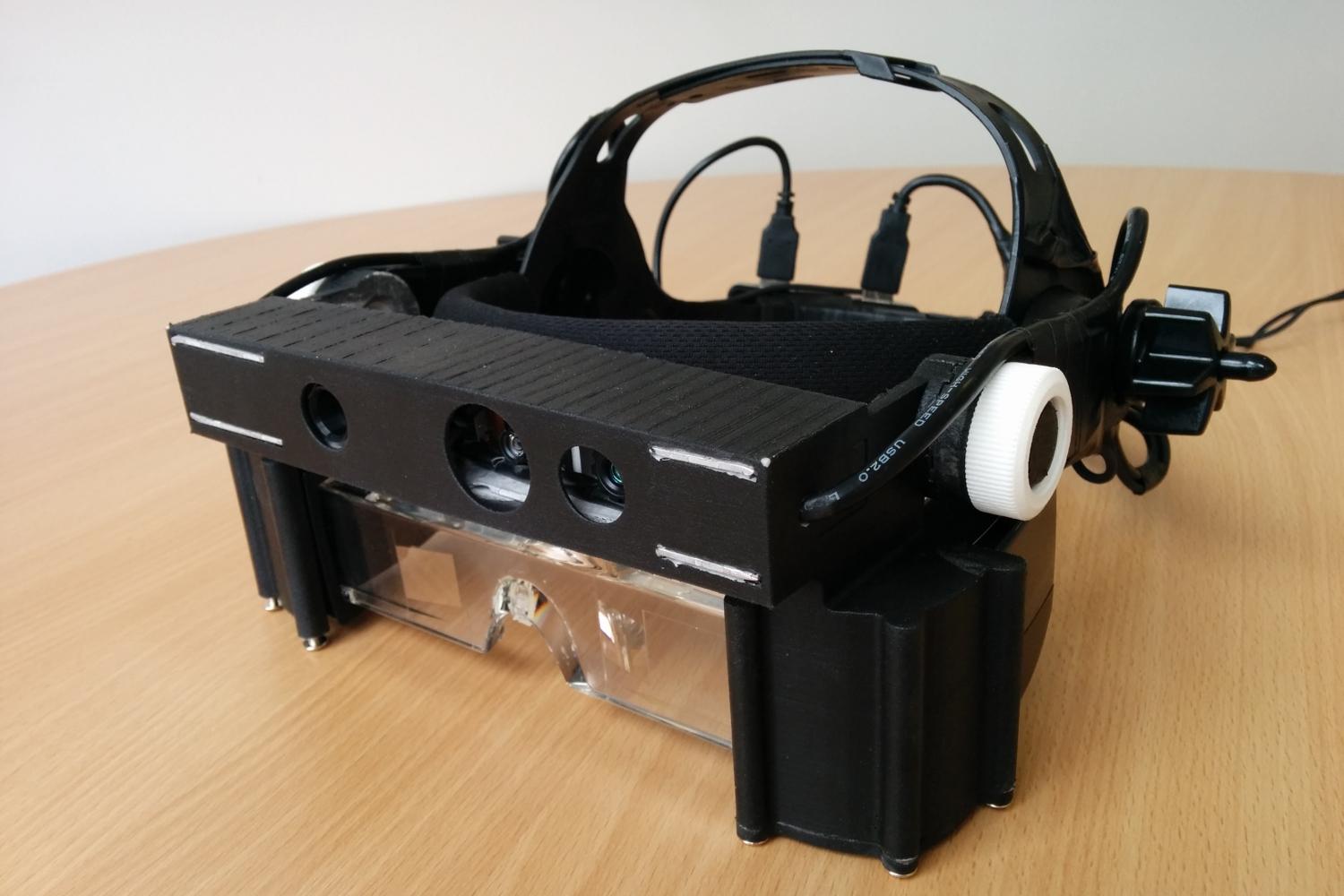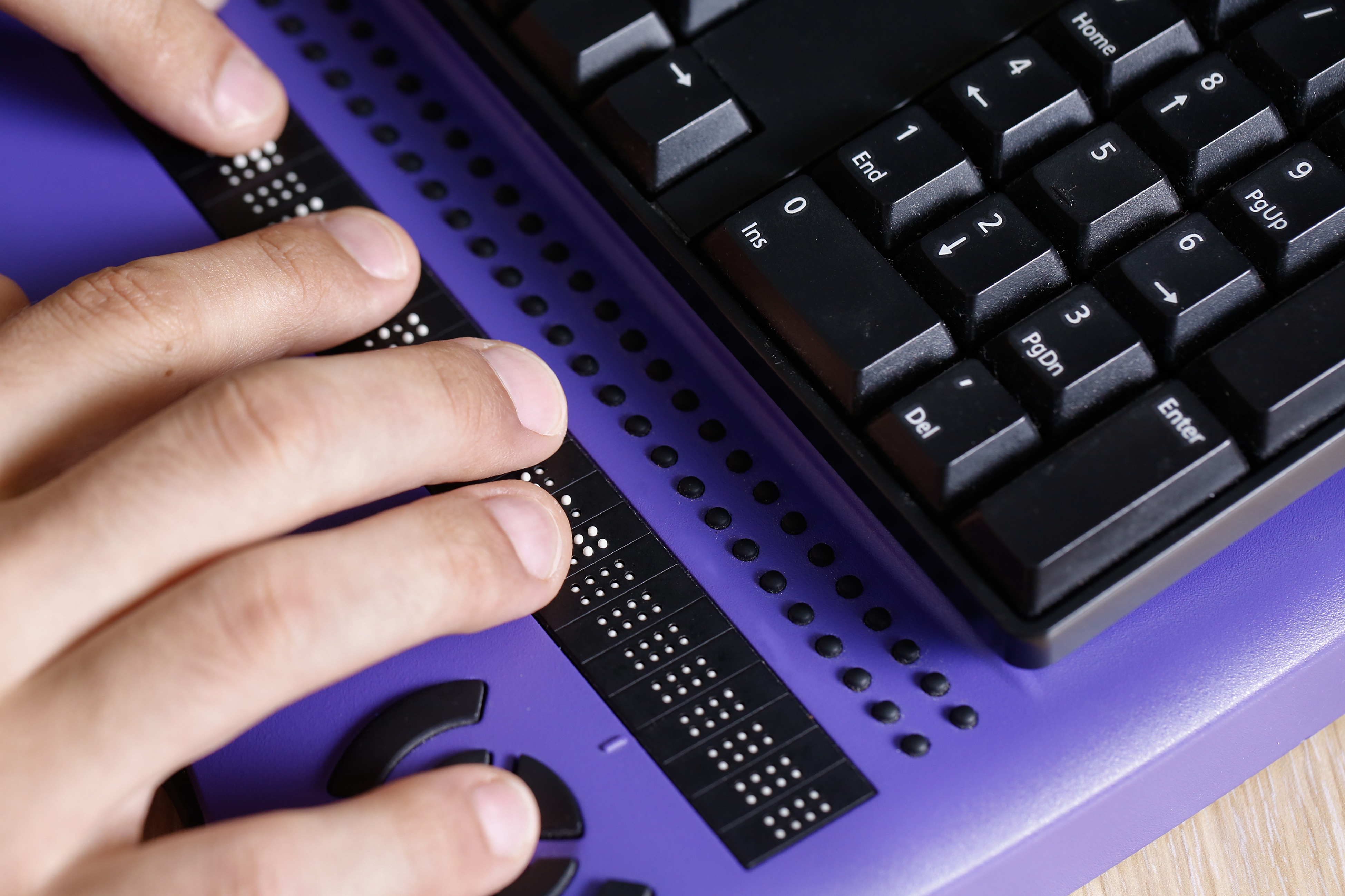Speech-to-Text Devices for Low Vision: Enhancing Convenience
Speech-to-Text Devices for Low Vision: Enhancing Convenience
Blog Article
Empowering Self-reliance With Assistive Innovation for the Blind
The integration of assistive technology right into the lives of people with aesthetic problems stands for a considerable development in promoting independence and self-sufficiency. From cutting-edge display readers to advanced wise canes, these devices not just enhance daily navigation and communication yet likewise empower individuals to involve meaningfully in different aspects of life. As we discover the myriad benefits and real-world applications of these technologies, it ends up being vital to take a look at the underlying elements that add to their performance and the potential for future growths in this crucial field.
Overview of Assistive Modern Technology

The advancement of assistive innovation is grounded in principles of inclusivity and empowerment. Technologies in software program, equipment, and sensory improvements offer individuals with choices customized to their particular needs. From screen viewers that convert message to speech, to responsive gadgets that convey information via touch, these devices transform the method individuals involve with their environments.
Along with useful applications, assistive innovation fosters better social incorporation and engagement in various sectors, consisting of education and learning and employment (Wearable technology for low vision). As r & d continue to progress, the potential for assistive modern technology to additionally improve the lives of aesthetically damaged individuals continues to be appealing, paving the means for a much more equitable culture where every person can flourish
Sorts Of Assistive Instruments
A range of assistive tools have emerged to sustain individuals with visual problems, each developed to meet details needs and enhance daily functioning. These gadgets range from low-tech solutions to state-of-the-art technologies, supplying varied options for customers.
Low-tech devices include magnifiers and large-print products that aid in reading and writing. Braille devices, such as Braille slates and stylus pens, allow tactile reading and communication. Alignment and movement help, like white canes, aid users navigate their atmosphere securely.
On the higher end of the spectrum, digital magnifying systems and screen readers use substantial assistance. Electronic magnifiers allow individuals to enlarge text and pictures on displays, while display viewers transform digital material into synthesized speech, promoting access to information on smartphones and computers.
Smart device applications also play an important function, offering attributes like message acknowledgment and navigating aid. Wearable innovation, such as clever glasses equipped with augmented reality, is becoming an appealing device to enhance situational awareness.
Benefits of Assistive Modern Technology
The combination of assistive modern technology dramatically boosts the lifestyle for people with aesthetic problems. These technologies empower individuals by advertising freedom, allowing them to navigate their atmospheres more successfully and execute day-to-day jobs with greater ease. Screen visitors and zoom software application allow individuals to access electronic info, promoting specialist and educational opportunities that might have previously been out of reach.
Furthermore, assistive tools such as clever canes and GPS applications give real-time navigating help, enhancing wheelchair and safety. This increased freedom not just enhances self-esteem yet additionally motivates social engagement, allowing customers to take part even more totally in their areas.
Assistive technology likewise helps with interaction, helping customers get family eye care center in touch with others through voice recognition and text-to-speech applications. This ability is crucial for preserving relationships and accessing critical details.
Additionally, the modification options readily available with many assistive modern technologies make certain that customers can customize devices to their specific needs, better improving use and efficiency. In general, the advantages of assistive innovation for people with visual disabilities are profound, advertising a more comprehensive society where everybody can pursue their goals and objectives.
Study and Success Stories
Highlighting the transformative influence of assistive technology, various study illustrate exactly how people with aesthetic impairments have efficiently integrated these tools right into their every day lives. One engaging instance involves an university student who used screen reading software program to browse online resources and academic products efficiently. This technology not only promoted her education and learning but likewise improved her confidence in joining discussions and team tasks.
One more study includes an expert who utilizes a smart redirected here device application made for navigation and things recognition. By utilizing this application, he has regained freedom in both his personal and workplace, allowing him to commute separately and engage with colleagues more properly.
Furthermore, a retiree shared her experience with braille her comment is here e-readers, which enabled her to access a large selection of literature and remain linked with her community through book clubs.
These success tales highlight the critical duty of assistive modern technology in cultivating independence, boosting lifestyle, and advertising social integration for individuals with aesthetic problems (OCR devices for the blind). By welcoming these innovative tools, users can get over obstacles and take opportunities that add to their individual and professional satisfaction

Future Fads in Assistive Technology
Technology in assistive innovation is positioned to redefine the landscape of assistance for people with visual problems. Emerging trends emphasize the integration of expert system (AI) and artificial intelligence, which enhance the functionality of tools that help with navigating and info availability. AI-driven applications are currently qualified of analyzing visual data in real-time, making it possible for individuals to involve with their environment more separately.
Moreover, the development of wearable innovation is advancing swiftly. Smart glasses geared up with augmented reality (AR) can provide audio descriptions of environments, changing how customers interact with public areas. These tools not only promote autonomy however additionally foster social inclusion.
In Addition, the Internet of Points (IoT) is making homes smarter, permitting smooth connectivity between everyday appliances and assistive tools. This connection empowers users by allowing voice-activated controls and automatic feedbacks customized to individual needs.
Verdict
In verdict, assistive modern technology plays a crucial duty in equipping people with aesthetic problems by enhancing their self-reliance and involvement with their environments. The varied variety of applications and tools readily available not just helps with navigating and communication however additionally advertises social combination and possibilities for personal and expert growth. As improvements continue in this area, the capacity for boosting the lifestyle for those with visual problems will certainly increase, cultivating better freedom and empowerment.

Report this page